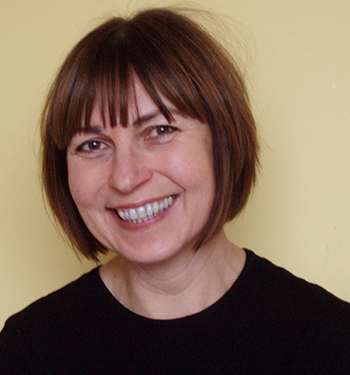Gabriele Jutz
Austria

Animating Truth(s): Surveillance, Censorship and Journalistic Ethics
WEBINAR 1: The Many Forms of Censorship
The paper brings together two supposedly conflicting tendencies: animated film and its commitment to truthfulness. It will deal with the following question: How do artists, in a world assumed to be politically and economically unstable, address the questions of existential crisis and articulate truth(s)? Beside content-related topics, such as surveillance, journalistic ethics and censorship the paper will highlight how the artworks in question were made and address their “politics of aesthetics.”
Three examples will be provided: Der Versuch einer Taube das Fliegen beizubringen (Attempt at Teaching a Dove to Fly, 2002) by Austrian artist Clemens Mock is based on images made by an airport baggage scanner. His poetic animation demonstrates a media archaeological impulse as it interprets the past in the light of the present, with a healthy disregard towards the notion of technology as progress.
Existing both as a multichannel installation and a single-channel work of consecutive episodes, Lessons of War (USA 2015) by Peggy Ahwesh consists of five short narratives about the 2014 Israeli-Gaza war. For Lessons of War Ahwesh repurposed animated news reports of current world events, made by the Taiwanese news agency TomoNewsUS, which specializes in CGI “newsreels.” The artist’s appropriation of this curious genre of animated news raises questions about journalistic ethics in our ostensibly ‘post-factual’ era but also addresses aesthetic issues. Finally, 8th October 2016 (Hungary 2016) by Péter Lichter and Bori Máté is a plotical statement dedicated to the sudden shutdown of Népszabadság (Liberty of the People), a major Hungarian newspaper and one of the most vocal critics of the government, on October 8, 2016.
What gives all of the animated films selected for this talk their particular edge is an involvement with “serious” matter, a critique of political, social or cultural systems widely accepted as normative. At the same time, these provocative, visceral and enriching experiences confront the viewer’s perception of the “truth.”
Biography
Gabriele Jutz is a professor of Film and Media Studies at the University of Applied Arts Vienna and head of the Department. She was a guest professor of film studies at the Freie Universität Berlin and at the Wolfgang von Goethe Universität Frankfurt. Her book Cinéma Brut. Eine alternative Genealogie der Filmavantgarde (Springer 2010) focuses on cameraless practices of experimental cinema. Her most recent publication RESET THE APPARATUS! A Survey of the Photographic and the Filmic in Contemporary Art (co-editors Edgar Lissel and Nina Jukić, De Gruyter 2019) shows how, in multiple ways, the apparatus (or dispositif) can be explored, taken apart, reflected, modified, and newly arranged. Along with participating in many international conferences, she has published numerous articles on the history, theory and aesthetics of film – in particular on the cinematic avant-garde, expanded cinema, experimental film sound, media art and experimental animation.


